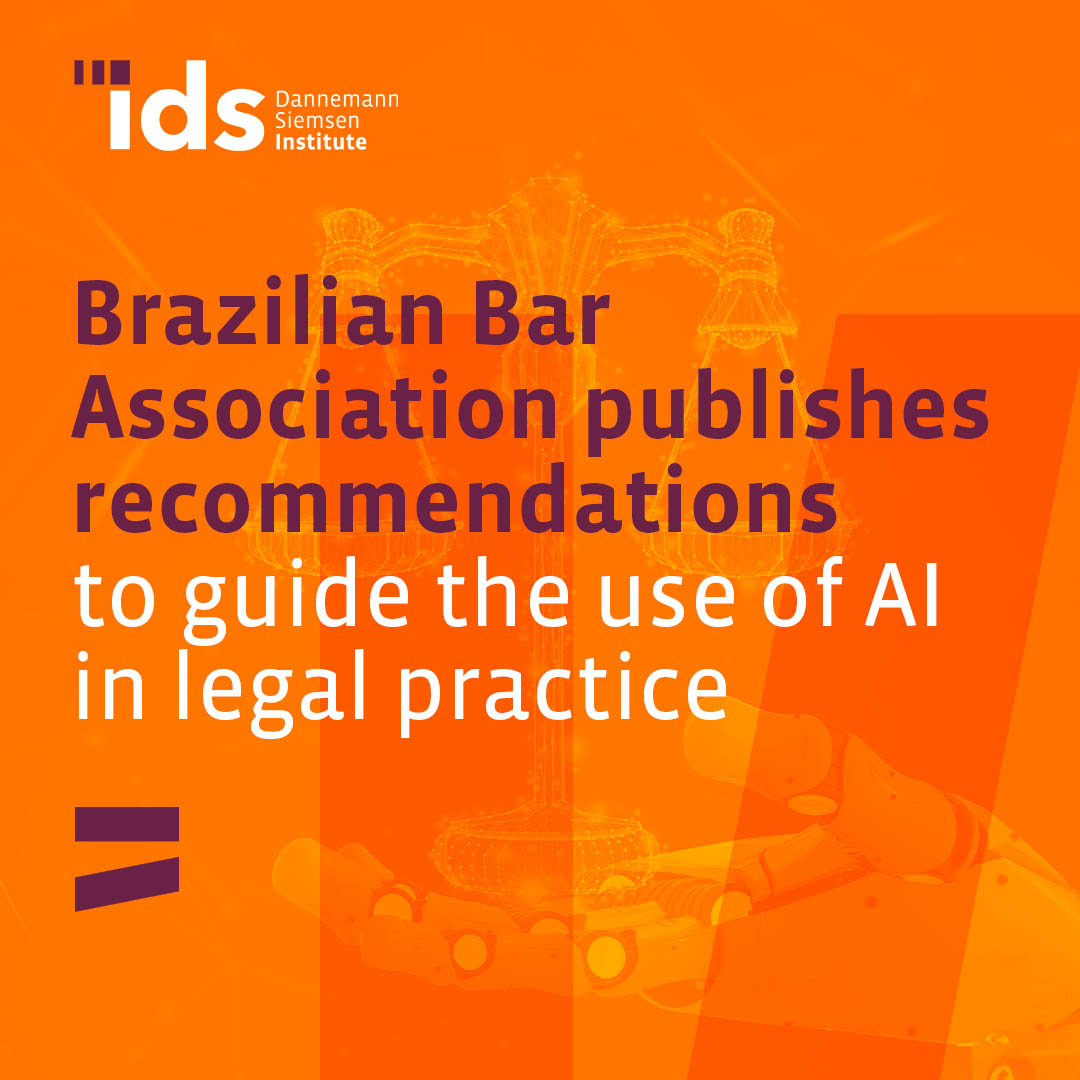25 de novembro de 2024
Share
Brazilian Bar Association publishes recommendations to guide the use of AI in legal practice
On November 11, the Federal Council of the Brazilian Bar Association (OAB) published a series of recommendations to guide the use of generative artificial intelligence (AI) in legal practice. The document was drawn up by the National Observatory for Cybersecurity, Artificial Intelligence and Data Protection of the Brazilian Bar Association and aims to safeguard the confidentiality of client information, the ethical and responsible use of AI, as well as suggesting the periodic updating of recommended practices.
The recommendation was divided into five chapters, which address: i) applicable legislation, ii) confidentiality and privacy, iii) ethical legal practices, iv) communication on the use of Generative AI; and v) final provisions. First, the OAB points out that the increased availability of AI tools for use in the justice system implies that the legal and ethical norms of the legal profession must be respected by lawyers, in particular the OAB Statute and its Code of Ethics and Discipline.
In this sense, the document first notes the various possibilities for using generative AI systems in the practice of law, as well as the risks associated with this use, such as the generation of content containing erroneous, inaccurate or biased information by AI, which can lead to the falsification of information, case law and facts presented in court. It also states that the generative AI system can be trained with false or biased information, which can generate discriminatory results and affect clients, employees or other parties.
Thus, the OAB recommends that the use of AI should be done in compliance with current legislation, citing the OAB Statute and its Code of Ethics and Discipline, as well as the General Law on the Protection of Personal Data, the Code of Civil Procedure (CPC) and respecting intellectual property. Next, with regard to confidentiality and privacy, the OAB resolves that when including information in AI systems, the lawyer must ensure the confidentiality and professional secrecy of the data submitted, and must be careful when entering data that could inadvertently make the client identifiable. Also on this topic, it determines the need for due diligence when choosing an AI system to ensure that the product supplier will protect information placed in the system, adopt security measures and make it possible not to use the data provided for training the systems. Another example of a recommendation given is not to use chatbots to carry out activities that are private to the legal profession, making it clear to the interlocutor that it is a machine.
Further on, when dealing with ethical legal practices when using an AI system, the OAB states that when using a generative AI system, the lawyer must ensure the ethical use of technology, so that professional judgment is not carried out by means of generative AI systems without human supervision. Likewise, with regard to the collection of doctrine and case law using generative AI, it advises that the lawyer must strictly comply with the duties established in Article 77 of the CPC, especially with regard to the veracity of the information presented in court, even if this is collected with the support of technological resources. The OAB points out that excessive reliance on AI tools is inconsistent with the practice of law and cannot replace the analysis carried out by the lawyer, although, when used, the lawyer “must engage in continuous learning about the content generated by AI and its implications for legal practice, carrying out constant training for those who use the tool in the team and clear guidelines on the ethical use of the tool”.
Also, when it comes specifically to litigation, the guidance is for the lawyer to ensure that the information provided to the court is accurate and verified. Thus, the OAB recommends that lawyers fully review all outputs generated by AI before presenting them in court proceedings, in order to avoid factual or legal errors; and that they do not rely exclusively on AI results when drafting arguments or documents submitted to the courts, ensuring human analysis.
Finally, with regard to communication about the use of Generative AI, the OAB requests that lawyers who choose to use AI tools or systems in the provision of legal services must formalize their intention to the client in advance, by means of a written document with explicit informed consent. Here, it also outlines that communication with the client cannot be based solely on content generated by generative AI systems, safeguarding the client’s right to interact with a human being upon request and respecting the private activities of the legal profession. The OAB concludes by saying that the recommendation will be reviewed periodically to keep up with the development of AI technologies and their applications in legal practice.
The document can be accessed via the link: RECOMENDAÇÃO N.001/2024 – Conselho Federal da OAB
Note: For quick release, this English version is provided by automated translation without human review.
